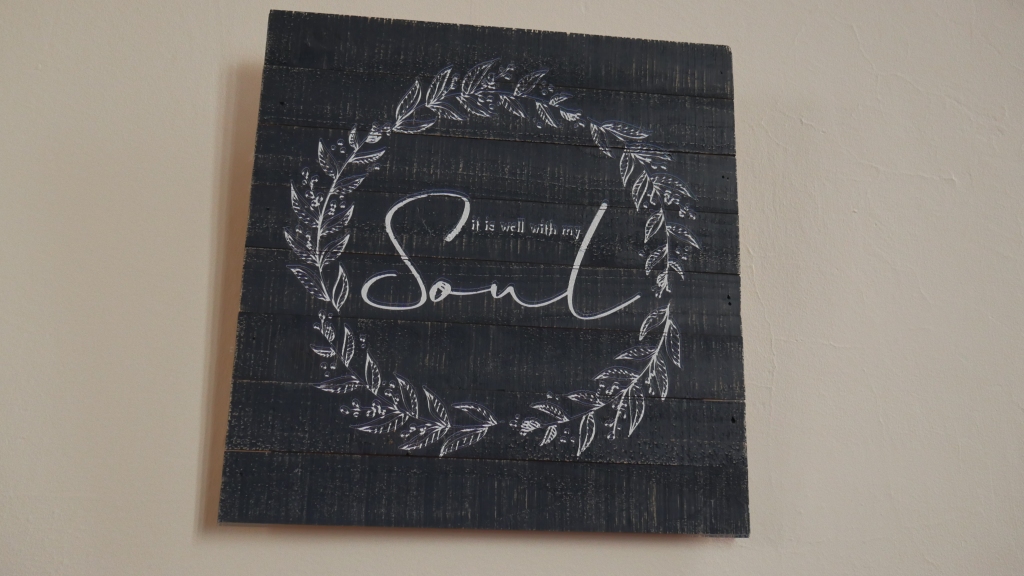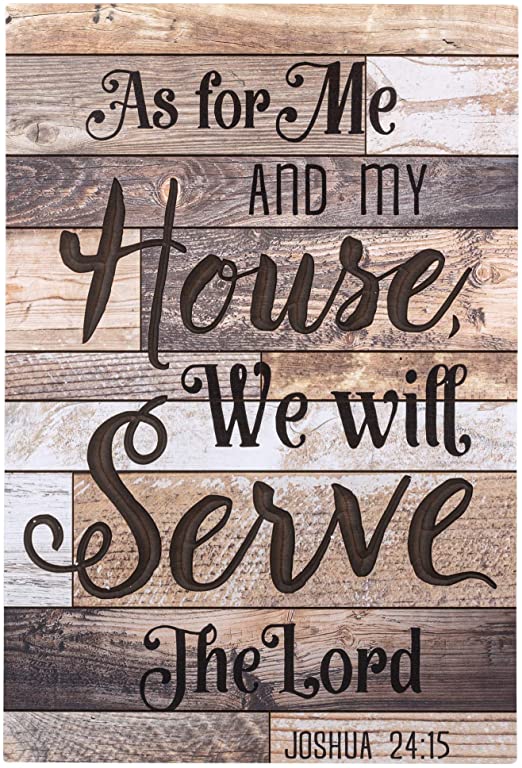It's OK to lament

Do you have any inspirational Scripture quotes displayed in your home? Or, if you don't now, did your parents, grandparents, or anyone have them when you were growing up?
There are certain verses that you'll see over and over. Here are a few examples from a quick Google image search:
One thing you'll notice about these and other similar inspirational home decor is that the messages are always positive! Well, I guess they wouldn't be considered inspirational otherwise. . .
As I was growing up, I remember being told often that to be a Christian meant that you should be happy and filled with joy at all times. Otherwise, your faith must not be strong enough, maybe you're not praying often enough or hard enough. As children, we sang songs like "I've Got the Joy" and "Happy All the Time." In some ways, this is a biblical concept; Paul talks in Philippians 4 about being "content" no matter the circumstance (vss. 11-13) and the teacher in Ecclesiastes says that God gives happiness to those who please God (2:26). But just because these verses are in the Bible, that does not mean that happiness and joy are the only "proper" human emotions.
I read a book called "Feel: The Power of Listening to Your Heart" in college. The author, Matthew Elliott, combats the common "evangelical" idea that feelings are "bad" or "sinful." The whole point of the book is to recognize that God created our feelings for a reason. It's ok to feel whatever you're feeling in any given moment. Acknowledge your feelings. Talk about them. Be honest with yourself and with God about them.

Take Jesus for example. Was his life filled with endless joy and happiness? Of course not! He wept when his friend died (even though he knew that he had the power to and would soon raise him from the dead. I wrote about this in a previous post here). He got angry at the sight of hypocrisy in the temple. He was upset when his disciples could not stay awake to pray with him in the garden. And, as you would expect, he wasn't happy when he was dying on the cross, quoting the psamlist's words, "My God, my God, why have you forsaken me?"
Which brings me to the point I want to make. It's ok to lament. To lament is to grieve that things are not as they should be. We're in a season of the church year where we're expected to slow down, to look at ourselves and our world and recognize the things that are broken (this is what Ash Wednesday as a tradition is all about). But we don't like to do this. It's uncomfortable. It can be hard. That's why Sunday School songs taught us to be happy all the time; it's easier to suppress complex emotions and pretend that everything's ok than it is to face them head-on.
But it's ok, and a truly healthy thing, to lament. This Lent is turning into a much bigger time of slowing down and reflecting than almost any other before it. With churches, businesses, restaurants, playgrounds, etc., all closed and with so many people practicing social distancing to limit the spread of a global pandemic, many of us have more time on our hands than we'd like to ponder the state of our hearts and of the world in which we live.

N.T. Wright recently wrote an article for TIME magazine with the title you see in the image above. He emphasizes that the one unique thing that Christianity can call us to in this difficult moment is lament. We can take the cue of the psalmist and pour out our emotions to God and to ourselves and those who love us and care about us. I posted on our church's Facebook page that many are finding unique ways to seek joy right now and that is great! If you can, like Paul, find joy in even the most difficult circumstance, do it! But, if all you can do right now is be worried about the state of our world, or be saddened by the loss of life, or frustrated with this slower pace of life, it is perfectly fine to feel those feelings, too.

"The point of lament, woven thus into the fabric of the biblical tradition, is not just that it’s an outlet for our frustration, sorrow, loneliness and sheer inability to understand what is happening or why. The mystery of the biblical story is that God also laments. Some Christians like to think of God as above all that, knowing everything, in charge of everything, calm and unaffected by the troubles in his world. That’s not the picture we get in the Bible."
N.T. Wright, from his TIME article. I encourage you to read the whole thing (I promise, it's short) here.
Know that God laments with us even, and especially, in times like the one we are living in now. Knowing this may not bring you joy, but it will remind you that, no matter what you are dealing with, you are not alone.
I'll end by telling you what prompted me to even begin to think about writing about this. I have a collection of crosses, crucifixes and other religious art that decorates the walls in my home and my office at the church. When I was thinking about all of the inspirational, "joyous" biblical quotes that people tend to have in their homes, I happened to notice the cross below.

"It is Well With My Soul" is my favorite hymn for many reasons. Mainly, I love it because of the story behind it. I won't go into much detail here; you can read a great summary on the UMC Discipleship page. The author experienced extreme hardship in his life and, yes, lament was a big part of his experience. But, in the end, he chose to say, "It is well with my soul." This is the closest I've ever seen to a piece of "inspirational" Christian art being an example of lament.

You might never see "From the depths of woe I cry to you" on anyone's wall (like the "inspirational" image I made for the top of this post), but maybe it wouldn't be such a bad idea. Just remember, it's ok to lament.







